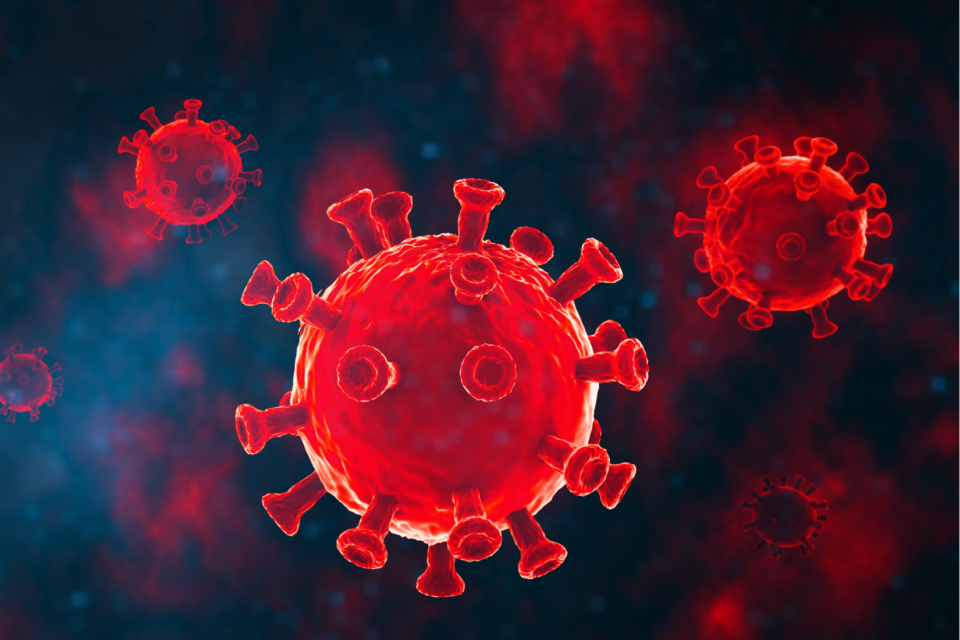What Businesses Need to Know Now About the Omicron Variant

Nearly two years into the pandemic, about 60% of Americans have been fully vaccinated against COVID-19. However, variants of the virus, such as Delta, have mutated and emerged, making COVID-19 a continued threat to public health and safety.
The latest COVID-19 variant, Omicron, was detected by scientists in South Africa on November 25, 2021, and has caused concern among the public and the health community. During a U.S. Chamber of Commerce Foundation event, U.S. Surgeon General Dr. Vivek Murthy sat down with Suzanne Clark, president and CEO of the U.S. Chamber of Commerce, to discuss what we already know about Omicron, the plan to combat this variant, and some persistent COVID-19 myths that people shouldn’t believe.
The First Case of Omicron in the U.S. Was Discovered in California
Dr. Murthy noted that the first American case of Omicron was a California-based individual who had recently traveled internationally.
“This is a traveler who came from South Africa, who is vaccinated … and whose symptoms are mild,” stated Dr. Murthy. “My guess would be that [their] mild symptoms likely have to do with the fact that the individual was, in fact, vaccinated.”
“There’s aggressive contact tracing that’s underway to understand who else may have been in contact with this individual to make sure that they also get tested and that they don’t put others at risk,” Dr. Murthy continued. “But we knew that this day would come when this new variant made its way to our shores.”
The Medical Community Is Studying Omicron Transmission Rates, Severity, and Vaccine Protection
Dr. Murthy and other world medical leaders are attempting to answer three very important questions to be able to give the nation and world more information on the Omicron variant.
“Number one, is it more transmissible than what we’ve been dealing with so far?” he said. “Number two, does it cause more severe disease than what we’ve seen? And number three, does it impact the protection that we get from vaccines and therapeutics like monoclonal antibodies?”
Dr. Murthy shared that it will take several weeks to gather the requisite data, the clinical data, and the laboratory data to make those determinations.
The Omicron Plan: Hoping For the Best, Planning for the Worst
Based on the current pandemic response up to this point, the U.S. government has developed contingency plans for how to deal with Omicron — not because they feel the worst is coming, but because it’s comforting for people to know there is a plan.
“There are people in the federal government who were thinking about … the worst-case scenario here and what they would do,” said Dr. Murthy. “The bottom line is we have a playbook for how to not only manufacture and update the vaccine, but also for how to deliver it to people … effectively.”
“And we will certainly call on that playbook if we need to, but … right now, the most important thing people can do is to go out there and get boosted if you are already vaccinated, and … if you’re not vaccinated, [get] vaccinated as quickly as possible,” he added.
Some Americans Still Believe Common COVID-19 Vaccine Myths
There’s a lot of information about COVID-19 vaccines out there, both accurate and inaccurate, and it’s important for Americans to understand the difference. Dr. Murthy noted that 78% of adults right now in America either believe a common myth about the COVID-19 vaccine or think that one of those myths might be true.
“One of the most common [myths] is that [the vaccine] causes infertility,” he said. “Absolutely no evidence suggests that it does. There are many people who’ve gotten the vaccine who’ve gotten pregnant.”
“There’s that myth circulating that COVID-19 vaccine causes COVID itself,” Dr. Murthy continued. “It absolutely does not. It does not have the entire virus and there’s no way it can cause COVID. There’s [also] a myth out there that it causes mutations in your DNA, which is absolutely not true, [because] there’s no DNA that’s actually being inserted into your system.”


